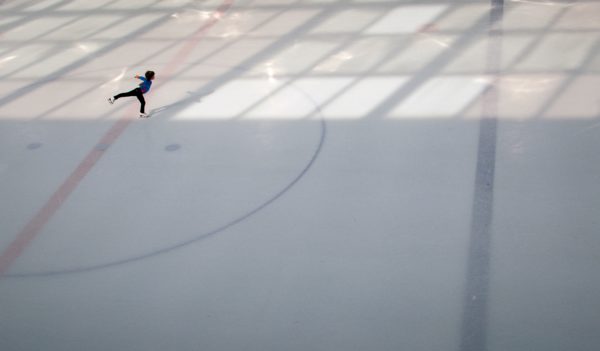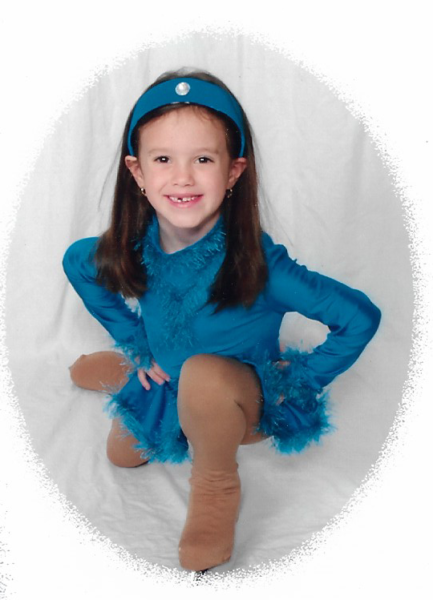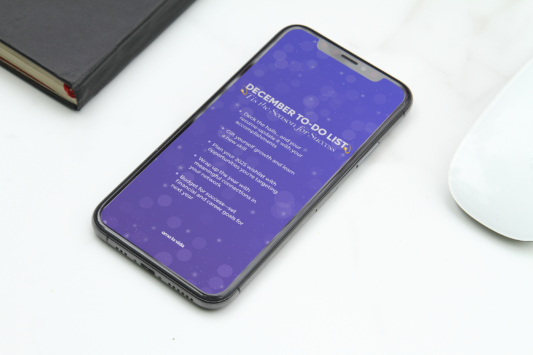How to Fall Well: Tales From an Amateur Figure Skater
Achieving Goals, Career Enrichment, Confidence

What a lot of people don’t know about me is that I was a competitive figure skater for 13 years. My childhood dream was to be an Olympic level skater. I wanted to be the next Sasha Cohen, Michelle Kwan, or Tara Lipinski. I had my Olympic year picked out – I would be a part of the US team for the 2018 Winter Olympics.
No one tells you when you want to be a figure skater, you are actually signing up to become a professional faller. You see, when you start taking lessons, the first thing an instructor teaches you is how to fall.
Now you may be thinking, “I don’t need any help falling. I’m already clumsy, and when you add in a slippery surface it’s bound to happen!” While your experience with falling may be inconvenient, there is a good chance it’s never hurt for more than a few minutes, or at worst, a few days. You may rest a few days, but eventually, you get back to life as you know it. What most people forget is that some falls can be detrimental if you don’t know what you’re doing.
The ice hurts.
It’s unrelenting and unforgiving. If you fall once, it does nothing to ensure that it hurts less the second time. In fact, because you’re already sore, it will actually hurt more every time after.
I know what you’re thinking. “Why are you telling me this? I have no desire to become a figure skater, nor do I want to have to learn how to fall!” The point, however, is that if you don’t know how to fall correctly, you can really hurt yourself. It’s not because the figure skating world wants to make all newbies feel dumb; it’s because we want to make sure you don’t get hurt.
We want to make you a “smart” faller.
Think of it this way, if you slip and fall landing on your hip, it’s going to hurt a lot more than if you land on your butt. When you learn to fall you practice falling onto your butt again and again and again. The point is to build a habit of falling on the most protected part of your body.
They lay the groundwork of skating by showing you how to fall so it doesn’t hurt as much. Then you have a much smaller chance of getting hurt. If they never taught us how to fall, I wouldn’t have made it through my figure skating career without major injury.
No matter where you fall, at the rink or in life, it can be detrimental. How many of you would say you’re willing to fall for multiple hours on end every day in the slim hopes that you will catch the right edge on your landing and stay on your feet?
I spent anywhere from 10-25+ hours a week at the rink growing up. If you ask my mom how much of that time was spent quite literally with me “on” the ice, versus skating she will admit a large majority of it. When you spend that much time falling you’re bound to learn a thing or two.

So here is what I learned from 12 years of falling:
 Resilience.
Resilience.
Call it resilience, call it persistence, call it grit, call it a never give up attitude! When “practice” means going to commit yourself to falling for hours on end, you learn a lot about how to stick with something until you get it right. Trying a new jump, chances are you’ll be throwing it about 100 times a day for 2-3 weeks until you can “land” it. When I started making cold calls I could make a hundred calls and they all would flop, hard.
The sting of rejection is a beast to manage.
But after you land the jump, it’s another series of 100 times a day for 2-3 weeks until you can call it consistent. The more I practiced cold calling, the more consistently I’m able to wrangle the conversation, predict the outcome, and get a meeting. Skating taught me that there is a really big difference between landing a jump once and landing it consistently.
 Consistency.
Consistency.
Speaking of consistency, I was taught at a young age the importance of delivering steadily. You can have the best program but if you can’t execute the skills almost flawlessly every time, you won’t win. The judges don’t care about your last performance, or how you did last week, they only care about now. Learning to show up every time you step on the ice is challenging. No matter what’s going on outside of the rink, you have to clear your mind, focus, and execute the task at hand. The bottom line is that the judges don’t care if you didn’t sleep well, or if you feel sick, or tight, or if you are having problems with your best friend.
They only care about how well you’re going to perform right here, right now.
I would attribute the character trait of consistency to my past academic achievements. I mean, you don’t graduate with a GPA of 4.2 if you don’t know how to show up on every paper, every assignment, and every project. This ability to give the tasks at hand my all each and every time I’m asked has also directly affected the amount of success I have in my current job at Ama La Vida.
 Courage.
Courage.
I’m sure you all know the saying “you have to get back on the horse when you fall.” The same goes for skating. You have to throw the jump again. You have to be open to knowing that you’re going to fall and be willing to try it again. Courage, as Harper Lee says, “is when you know you’re licked before you begin and choose to see it through no matter what.” Nothing builds courage like knowing you’ll be working on a jump for two weeks before even having the chance at landing it. To me, courage is looking disappoint/pain/fear in the face and doing it anyway because those outcomes don’t control me.
There is something so freeing when you can look fear in the face and do the thing you’re scared of.
Moving to Chicago, terrifying. Running a marathon, terrifying. Cold calling, absolutely terrifying. When you find ways to push yourself outside of your comfort zone, you can achieve way more than you ever thought possible!
 How To Measure Success.
How To Measure Success.
Success is one of those squirmy words because what I view as success isn’t what you would view as success. When we try to measure our success based off of someone else’s outcome we will always feel inadequate. Learning how to measure success based on my own yardstick, my own experiences, and my own story was a powerful tool that skating granted me. I learned to measure success in a mirror if I improved in some way/shape/or form that’s all the mattered. It was a hard lesson for a little girl to learn because a large portion of skating is competing. The judges don’t care. I learned at a young age to remove my success (or failure) from the outcome of the situation. The practical applications of this are huge.
Humans are very outcome-oriented people.
We want a direct correlation between how much effort we put in and what we get out. When we aren’t getting the outcomes we want, we give up on the effort we put in. Sometimes, it’s not a matter of if you’re putting in the effort or not, sometimes it’s bigger than you. It could be a broken process or an outdated procedure. When we can separate our work ethic from the outcome we can achieve success no matter where we end up!

The moral of the story is that falling can hurt! But when we learn to take the pain and the disappoint in stride, we can build character traits that serve us well for years to come. Here’s to embracing the challenges, standing up, and trying again no matter how many times we fall.


